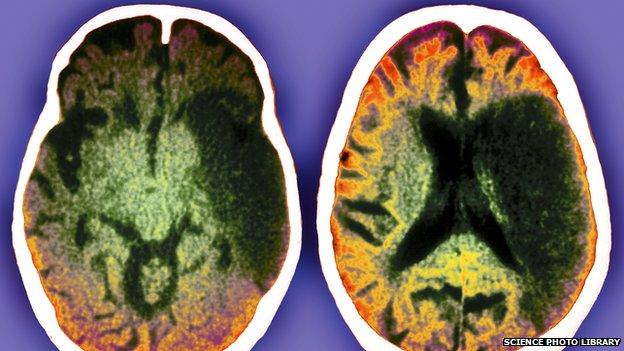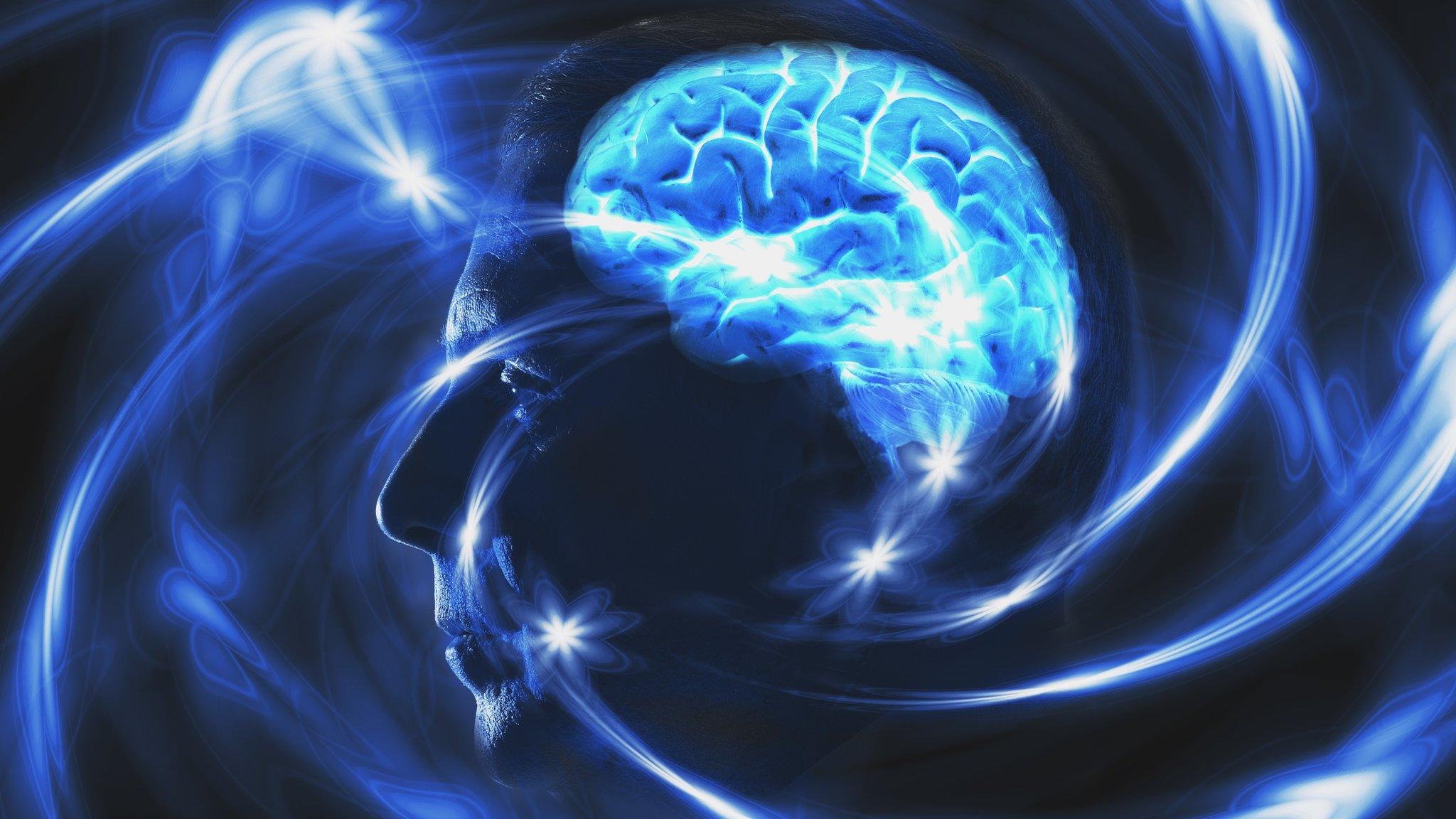Brain scans 'can predict risk' even after mild stroke
- Published

CT scans can predict the risk of further strokes in mild stroke patients, the research suggests
All patients should be given a brain scan after a stroke, even if it is a mini-stroke, say Canadian researchers writing in the journal Stroke.
This is because images of the brain can help doctors assess the damage done and predict the risk of another stroke occurring.
In the UK, guidelines recommend urgent treatment of high-risk stroke patients.
But the Stroke Association says thousands of lives could be saved by treating mini-strokes within 24 hours.
The research team, led by Dr Jeffrey Perry, associate professor of emergency medicine at the University of Ottawa in Canada, tracked more than 2,000 patients who received CT scans within 24 hours of a transient ischaemic attack (TIA) or non-disabling stroke.
A TIA is caused by restricted blood supply to the brain, and symptoms can last only a few minutes.
A CT scan combines a series of X-ray views to give doctors cross-sectional images of the brain.
The scans revealed that 40% had brain damage due to impaired circulation.
Doctors were looking for signs of newly damaged tissue due to poor circulation, previously damaged tissue and damage to any type of small blood vessel in the brain, such as narrowing of the small vessels.
A quarter of the patients showing all these types of damage to their brain in the scans had another stroke within 90 days.
This compared with 3.4% of people in the study group as a whole, making the scans a useful prediction tool.
Warning sign
Dr Perry said: "During the 90-day period, and also within the first two days after the initial attack, patients did much worse in terms of experiencing a subsequent stroke if they had additional areas of damage along with acute ischemia."
He added that doctors should be willing to use CT scans on patients within 24 hours of a mild stroke, even if symptoms do not last long.
"These findings should prompt physicians to be more aggressive in managing patients with TIA or non-disabling stroke who are diagnosed with acute ischaemia."
Other measures to prevent further stroke can include cardiac monitoring or medication to lower blood pressure, treat high cholesterol or prevent blood clots.
Chris Larkin, regional head of operations at the Stroke Association, said a mini-stroke can often be a warning sign that a major stroke is on its way.
"Each year, around 46,000 people in the UK have a mini-stroke [transient ischaemic attack or TIA].
"A quick response to stroke can significantly reduce the risk of death and disability.
"If patients with mini-stroke are assessed and treated as an emergency within 24 hours, the risk of a major stroke is reduced by 80%.
"This could prevent around 10,000 strokes each year in the UK and save over 3,000."
- Published19 August 2014

- Published15 April 2013

- Published10 January 2013
